Filmmaker 5 with Elham Esas: Yellow
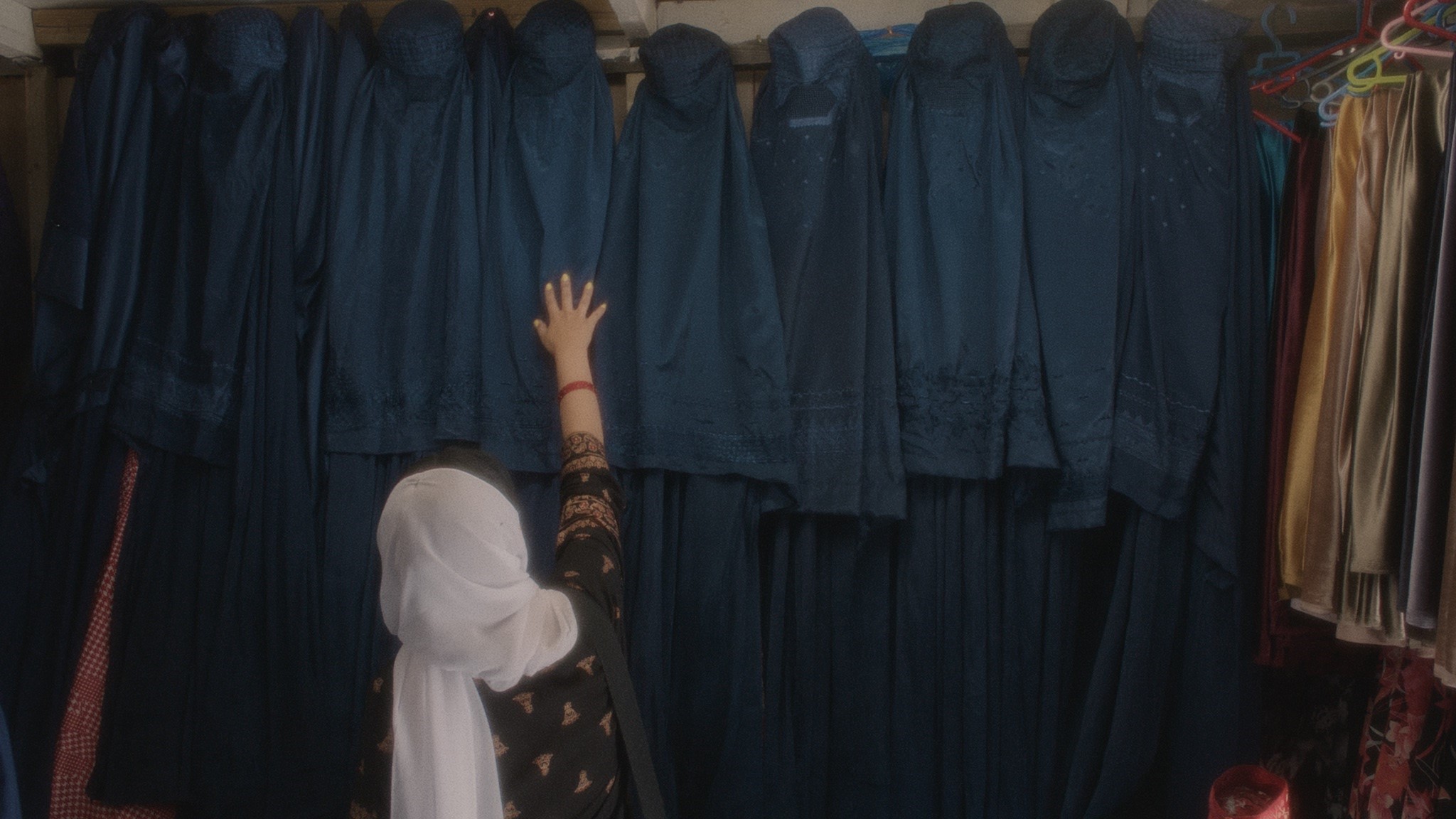
Director, writer and actor Elham Ehsas brings his 2023 short movie Yellow, in which he plays a young man working in a Talab Chadari shop in Kabul. A young woman enters the shop, Laili played by Afsaneh Dehrouyeh, determined on buying the government mandate hajib in burqa style, completely covering the face. It’s blue, and she tells the young clerk the name of colors in English as she tries on burqas. The chemistry between them is palpable, made especially poignant as the garment she is there to buy will completely hide her identity. Yellow brings an authentic view into the lives of women in Afghanistan since 2022 when the Taliban regime required women to wear the burqa in public as part of their interpretation of Islamic law.
Award-winning writer and director originally from Kabul, Afghanistan Elham Ehsas was 10 when his family fled Afghanistan and sheltered in the United Kingdom. Our interview with the = BAFTA nominated and Oscar-shortlisted writer on his newest short film, Yellow, follows.
Filmmaker 5.1: Color—as evident in the film’s title—is an important element in the film. How did you come to it thematically to tell your story?
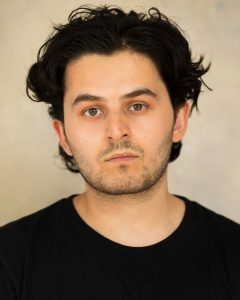
I was always looking for a symbolic and simple element that grounds the film and what drew me to Yellow as the colour of choice was the contrast with which it fights against the blue of the chadari. Yellow is the light whereas blue is the dark. Yellow is the hope and blue is the shadow that slowly creeps over her.
Filmmaker 5.2: Can you share insights on how you approach risk-taking and pushing boundaries in your filmmaking? How did you approach the multiple roles of writer, director, and lead actor in the film?
I am a student and disciple of cinema and I want to drown myself in the craft and swim in the ocean that is film story and emotion. Even when I watch a movie in a cinema, I’m sat at the front because I want it to envelope me entirely. I am very lucky to have been the writer, director and actor in this film because it shows that everything, every element of the story, was part of me and aligned entirely with me and that is an honour that doesn’t come often. I definitely won’t make a habit of it but when I am able to – it’s a great feeling.
Filmmaker 5.3: Most of the film is shot in close interior, emphasizing the exchange between the central characters. How did you construct this setting, which truly places viewers in a Talab Chadari store in Kabul?
I worked with incredible collaborators. My production designer Lara Zaidan helped bring Afghanistan both inside and outside this little shop. My DOP Yiannis Manolopolous and I started speaking months before we were on set in deciding the look, feel and texture of the picture and, in collaboration with our sound designer Guldem Masa, both picture and sound were married in a way where we could go from the real exteriors of Kabul to an exterior in Hackney and no one was any wiser to it.
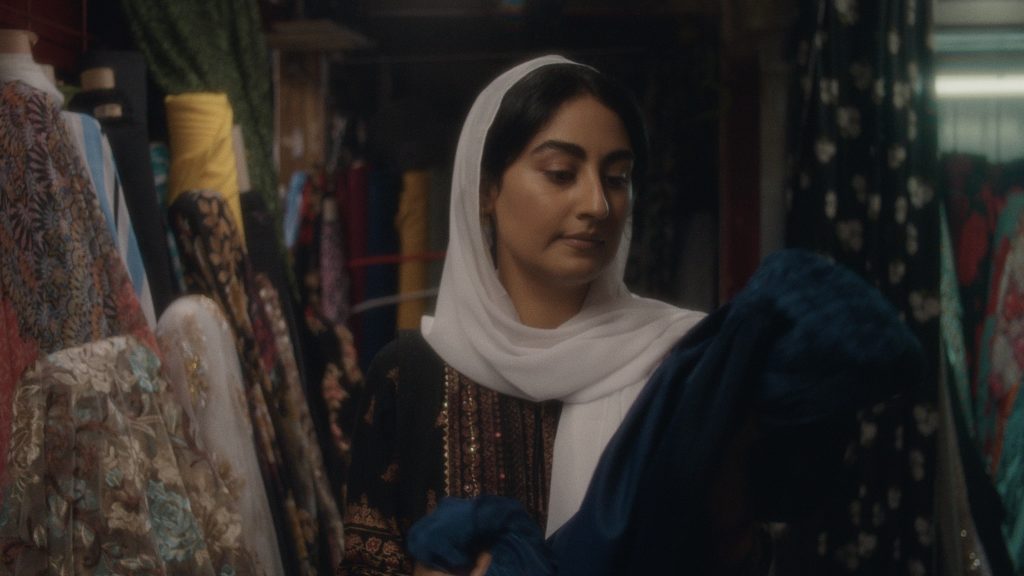
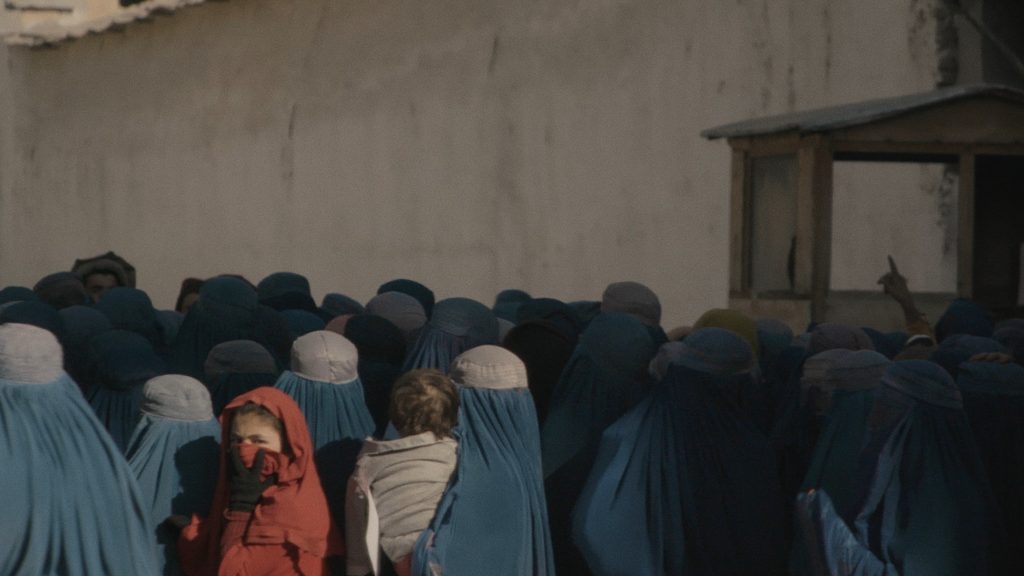
Filmmaker 5.4: You have worked with your lead actress Afsaneh Dehrouyeh before. How did this established history inform how you approached your direction—and your own acting—to bring forward her powerful performance?
Me and Affie have a great relationship and shorthand as we worked on my first short film Our Kind of Love. She has always been an incredibly generous collaborator, giving the character everything every time. and I was very lucky to work with her. And being the caliber of actor that she is, I could be in a scene with her and blink and not have to worry about directing her performance when I am in front of the camera because we have worked through all of that in rehearsals and she came prepared and ready to embody Laili.
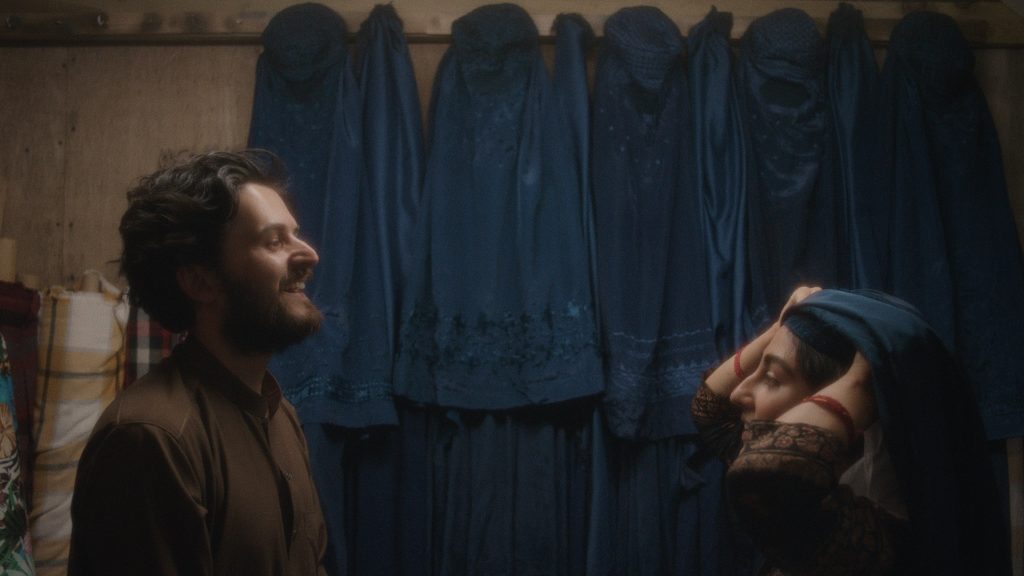
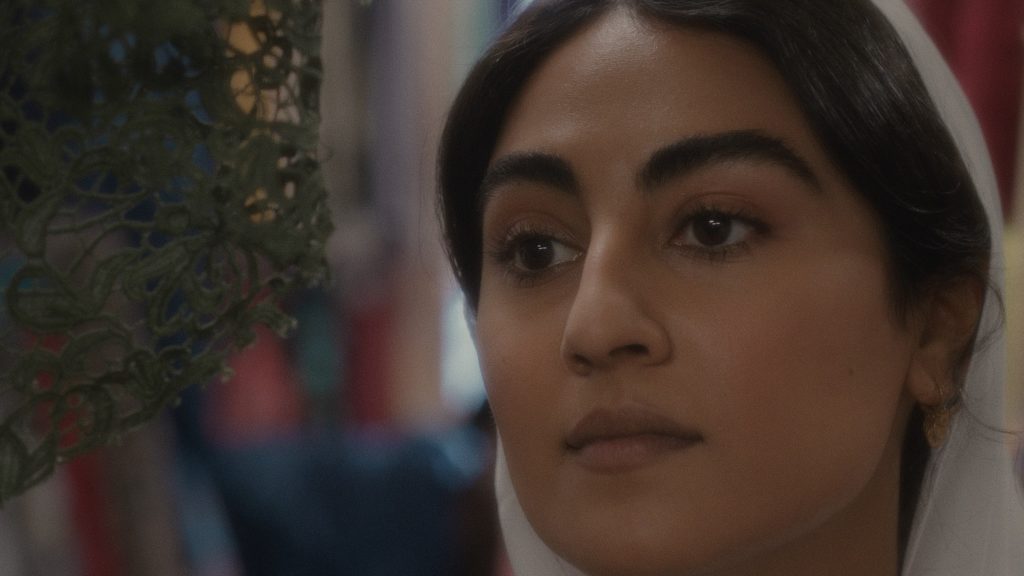
Filmmaker 5.5: The film shows what is and alludes to what could be in the relationship between the shopkeeper and the young woman’s customer. What do you want audiences to glean from this story about the reality of Afghan culture?
The reason I started making films is to show a more nuanced and complex version of Afghan culture with its beauty and humanity, rather than the stereotypical narratives that portray that part of the world in a negative light. Afghans are funny, charming sweet sad and human, just like all of us in the West. The East holds gems and treasures of stories that give us the same emotions completely as the West and shouldn’t have to be confined as tertiary arcs in modern Western cinema.
Filmmaker 5® collaborators Sharon Walters, senior film researcher
and Kami Spangenberg, publisher
